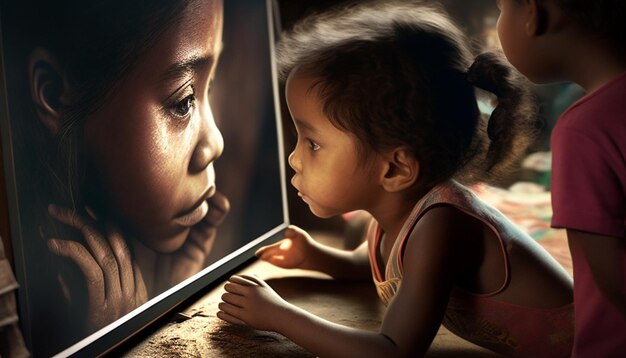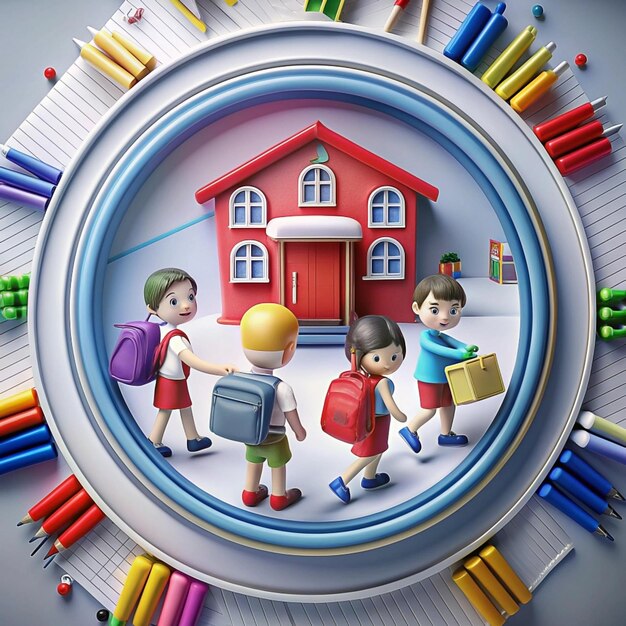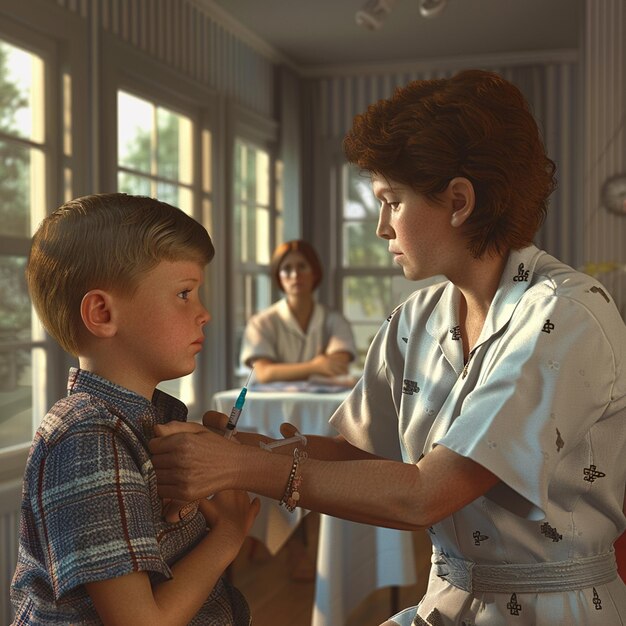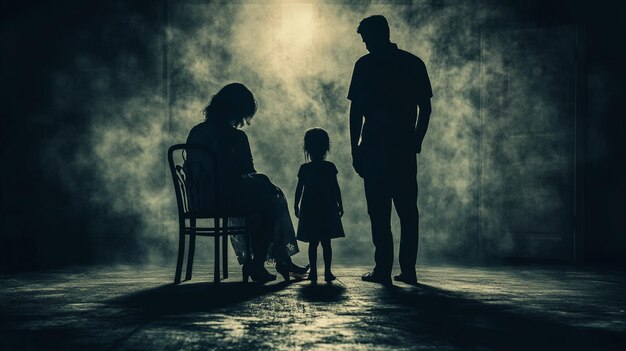The Hidden Impact: What Happens to Kids When Parents Go to Prison?
Behind bars, their parents may be out of sight, but the ripple effect of incarceration on children is far from invisible.
Emotional Trauma
The first and most immediate impact on children whose parents are incarcerated is emotional trauma. The stigma of having an incarcerated parent often leads to feelings of shame and isolation, causing children to feel different from their peers. Additionally, the loss of a parent’s love and support can leave children feeling abandoned, anxious, and insecure.
Economic Hardship
The financial burden of incarceration can also have a profound effect on children. The loss of income from the incarcerated parent can lead to poverty and housing instability, forcing families to relocate or struggle to make ends meet. Moreover, the cost of transportation, phone calls, and commissary expenses can put a significant strain on the family budget.
Educational Disparities
The impact of parental incarceration on children’s education is also significant. Students with incarcerated parents often experience absenteeism, academic decline, and behavioral problems. Furthermore, the lack of financial resources and support can limit opportunities for extracurricular activities and after-school care.
Long-Term Consequences
The long-term consequences of having a parent in prison can be far-reaching. Children of incarcerated parents are at an increased risk for delinquency, substance abuse, and mental health issues. Moreover, the stigma of having an incarcerated parent can continue to impact children well into adulthood, affecting their educational and career prospects.
Supporting Children of Incarcerated Parents
It is crucial that we acknowledge the hidden impact of parental incarceration on children and work to mitigate the negative consequences. Providing resources for mental health support, educational opportunities, and economic assistance can help alleviate some of the hardships faced by children with incarcerated parents. By recognizing the impact of parental incarceration on children and working to address their unique needs, we can help ensure a brighter future for these families.

Parental Imprisonment: A Hidden Crisis Affecting Children
Parental imprisonment, the consequence of one parent being incarcerated, is a growing issue in society, with far-reaching effects on children. According to the link, approximately 1.7 million children in the United States have had a parent in prison at some point during their childhood, representing about 2.3% of all U.S. children under 18 years old. This figure translates to one in every 28 children.
The Emotional Toll on Children
The emotional toll of parental imprisonment can be profound. Children often experience feelings of shame, guilt, and sadness as a result of their parents’ incarceration. They may feel stigmatized and isolated, leading to decreased self-esteem and increased anxiety or depression. Visitation, which is often limited in frequency and duration due to logistical challenges, can further complicate the emotional bond between parents and children.
Long-term Consequences for Child Development, Education, and Future Opportunities
Beyond the emotional implications, parental imprisonment can have significant long-term consequences for child development, education, and future opportunities. Research shows that children of incarcerated parents are more likely to experience academic difficulties, including lower grade point averages and higher dropout rates. They may also face housing instability, food insecurity, and financial hardships.
Addressing the Hidden Impacts of Parental Imprisonment
It is essential to understand and address these hidden impacts of parental imprisonment on children. Policymakers, advocacy groups, and community organizations can take steps to support these families by providing resources for mental health services, education programs, and employment opportunities. Additionally, promoting prison reforms that prioritize rehabilitation and reduce recidivism can help prevent future incarcerations and the associated consequences for children.

The Emotional Toll on Children with Incarcerated Parents
Reactions to parental imprisonment:
Children react differently to the news of a parent’s arrest and incarceration, often experiencing a range of emotions. Shock, denial, anger, guilt, shame, and sadness are common reactions. According to the link on “Parenting from Prison,” some children may feel betrayed, confused, or scared. They might struggle with feelings of abandonment and ask themselves if they are somehow responsible for their parent’s actions.
Coping mechanisms and emotional resilience:
Children develop various coping mechanisms and display remarkable emotional resilience. Some children may seek solace in their siblings or extended family members, forming closer bonds. Others might rely on their schools, communities, and organizations for support, finding comfort in peers who share similar experiences.
Impact on siblings and extended family members:
Siblings are often deeply affected by a parent’s incarceration, as they may feel overwhelmed by the added responsibilities at home. Extended family members can play a crucial role in helping to ease the burden and providing emotional support.
The stigma attached to having an incarcerated parent:
Children with incarcerated parents often face stigma from society, which can influence how they are perceived. The child may feel isolated and ashamed, leading to feelings of embarrassment or low self-esteem.
How society’s perception of the child is influenced by their parent’s criminal history:
Society’s negative perceptions can also impact a child’s access to resources, opportunities, and even their overall well-being. Children with incarcerated parents might be subjected to bullying or discrimination in school or within their community.
Strategies for addressing stigma and fostering positive self-image in children:
Parents, educators, and community organizations can help to mitigate the negative effects of stigma by fostering open discussions about incarceration and its impact on families. Creating safe spaces where children can share their experiences, learn from one another, and build supportive relationships is essential for promoting emotional well-being and positive self-image.

I Long-Term Consequences for Child Development, Education, and Future Opportunities
Disruptions to daily life and stability
Children of incarcerated parents often face disruptions to their daily lives and stability. Some may be forced to change housing arrangements, schools, and community relationships due to their parents’ imprisonment. These transitions can be challenging and may lead to academic setbacks, behavioral issues, and emotional distress.
Changes in housing arrangements, schools, and community relationships
A parent’s incarceration can lead to changes in housing arrangements. Children may be placed in foster care, live with relatives, or move frequently between homes. These disruptions can make it difficult for children to maintain stable educational environments and form positive community relationships.
Financial hardships and challenges with accessing resources
Parental imprisonment can also lead to financial hardships for families, making it challenging for children to access necessary resources. This can include educational materials, healthy food, and extracurricular activities that are essential for academic success.
The impact of parental imprisonment on academic achievement
The academic progress of children with incarcerated parents can be negatively affected in several ways. Challenges faced by children in maintaining educational progress include the emotional toll of their parents’ absence, lack of resources and support, and the stigma associated with having an incarcerated family member.
Challenges faced by children in maintaining educational progress
Children of incarcerated parents often face unique challenges in their academic careers. They may struggle to focus on schoolwork due to the emotional distress caused by their parents’ absence, or they may lack access to resources and support that are essential for academic success.
Strategies for supporting children’s education during and after parental incarceration
To support children’s educational progress during and after their parents’ incarceration, it is important to provide them with consistent and stable living situations, access to necessary resources, and positive role models. This can include mentoring programs, after-school activities, and academic support services.
The impact on future opportunities, including employment and housing prospects
Children of incarcerated parents often face challenges when applying for jobs or securing housing due to their family history. Employers and landlords may discriminate against them, leading to limited opportunities and increased economic instability.
Challenges children face when applying for jobs or securing housing due to their family history
The stigma associated with having an incarcerated family member can make it difficult for children to secure employment or housing opportunities. Employers and landlords may view their criminal history as a liability, even if they were not the ones who committed the crime.
Strategies for promoting resilience and overcoming obstacles
To promote resilience in children with incarcerated parents, it is essential to provide them with consistent support and resources. This can include mentoring programs, educational opportunities, and employment training. By helping children develop the skills they need to overcome obstacles and build a better future for themselves, we can reduce the negative impact of parental imprisonment on their lives.

Addressing the Needs of Children with Incarcerated Parents:
Policies, Programs, and Community Involvement
Children with incarcerated parents face unique challenges that require comprehensive and coordinated responses from policymakers, service providers, and communities. The following sections outline some key areas of focus to address the needs of this population:
Reentry Programs for Parents:
Evidence-based practices that prioritize family engagement during incarceration: Reentry programs that facilitate parent-child communication, provide educational and vocational training, and address substance abuse issues can help reduce recidivism rates and improve family relationships.
Services for Children:
Mental health services and educational support: Children with incarcerated parents often experience emotional distress, academic struggles, and social isolation. Access to mental health care and educational resources can help mitigate these challenges and promote positive outcomes for affected children.
Role of Schools:
Schools play a critical role in identifying and addressing the needs of affected students: Educators can work to create supportive environments, connect families with available resources, and provide academic accommodations as needed.
Community Involvement and Advocacy:
Role models and mentors: Mentoring programs can help provide children with positive adult role models, offering guidance and emotional support during challenging times.
Public Policy Initiatives:
Public policy initiatives can support families and address systemic issues: This includes funding for evidence-based programs, expanding access to mental health services, and advocating for criminal justice reforms that prioritize family unity and reintegration.

Conclusion
As we have explored in this discourse, the hidden impacts on children when their parents go to prison are profound and far-reaching. Beyond the immediate trauma of parental separation, these children face a multitude of challenges that can have long-lasting effects on their development and wellbeing. Emotional turmoil, stigma, financial instability, and disrupted education are just a few of the many issues that children of imprisoned parents often encounter. It is crucial that we acknowledge and address these challenges and advocate for change.
Importance of Addressing the Challenges
The psychological and emotional toll of parental imprisonment on children is a serious concern that requires our attention. Studies have shown that these children are at risk for developing mental health issues, including anxiety, depression, and behavioral problems. Moreover, the social stigma associated with having a parent in prison can lead to isolation, shame, and a lack of support. Furthermore, the financial instability that often accompanies parental imprisonment can exacerbate existing poverty and create further challenges for children.
Advocacy for Change
It is essential that we advocate for policy changes and community support to help children affected by parental imprisonment thrive despite adversity. One such policy change could be expanding access to mental health services for these children and their families. Additionally, increasing awareness of the issue through educational campaigns can help reduce the stigma associated with parental imprisonment. Moreover, community support programs, such as mentoring and tutoring initiatives, can help mitigate the educational disruptions that these children often experience.
Continued Research and Policy Changes
However, it is essential to recognize that this is only a starting point. Continued research is necessary to fully understand the complex ways in which parental imprisonment impacts children and to identify effective interventions. Furthermore, policy changes that address the root causes of mass incarceration are essential to prevent children from experiencing this trauma in the first place. Ultimately, it is our responsibility as a society to ensure that every child has the opportunity to grow up in a safe, stable, and nurturing environment, regardless of their parents’ criminal histories.
Final Thoughts
In conclusion, the hidden impacts of parental imprisonment on children are significant and far-reaching. It is crucial that we recognize and address these challenges and advocate for change. By expanding access to mental health services, increasing awareness of the issue, and supporting community initiatives, we can help ensure that children affected by parental imprisonment thrive despite adversity. However, continued research and policy changes are necessary to fully understand the issue and prevent children from experiencing this trauma in the first place.




